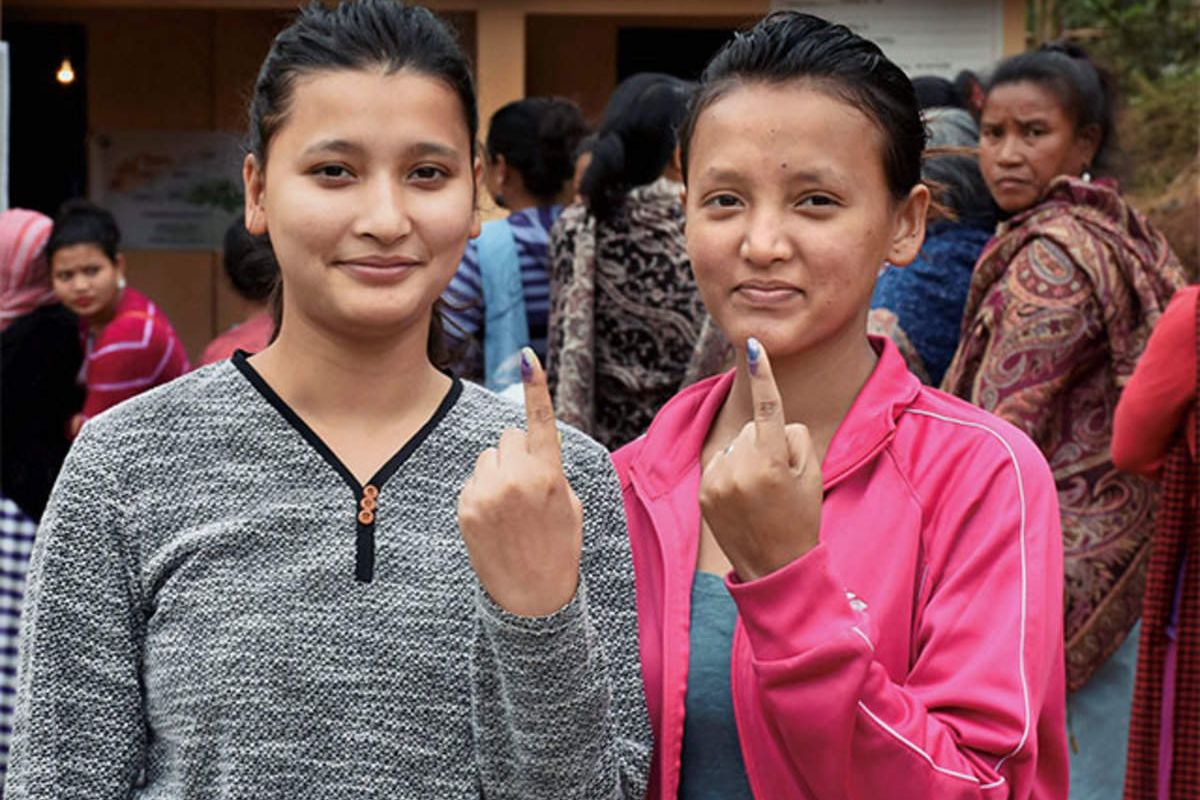Hate speech: BJP leader George seeks time to appear before police
George on Saturday requested the police for an extension until February 24 to appear before them for investigation in connection with the case.
The Bharatiya Janata Party (BJP) is banking heavily on clinching victory in nearly all 25 seats, underscoring its concerted bid to solidify its hold in the region and diminish the long-standing dominance of the Indian National Congress.

Photo: Voting in Northeast
In the wake of the conclusion of polling across most northeastern states, excluding Assam, all eyes are now fixed on the impending election results, signalling the region’s paramount importance in national politics.
The Bharatiya Janata Party (BJP) is banking heavily on clinching victory in nearly all 25 seats, underscoring its concerted bid to solidify its hold in the region and diminish the long-standing dominance of the Indian National Congress.
Advertisement
The formation of the North East Democratic Alliance (NEDA) by the BJP after it stormed to power at the centre in 2014 aimed to forge a formidable non-Congress front, rallying support from smaller regional parties to challenge the Congress stronghold.
Advertisement
However, internal dissent within NEDA, stemming from the BJP’s dominant stance, has revealed underlying power struggles within the coalition.
Despite initial hiccups, the BJP has shown adaptability by recalibrating its strategy to accommodate regional aspirations and recognising the imperative of inclusivity for sustaining alliances and electoral triumphs.
The distribution of seats in the Lok Sabha election 2024 across states reveals the diverse electoral landscape, with Assam boasting 14 seats, while Manipur, Tripura, Meghalaya and Arunachal Pradesh hold two seats each, and Nagaland, Mizoram and Sikkim have one seat each.
The BJP’s reigning status or coalition presence in several states underscores its burgeoning influence, notably in Assam, Manipur, Tripura, and Arunachal Pradesh.
The shift towards a unified campaign under the National Democratic Alliance (NDA) banner in this election marks a departure from the absence of seat-sharing arrangements in 2019, signalling a strategic pivot towards coalition politics.
Disparities in seat-sharing arrangements, such as BJP allies contesting separately in Mizoram and Sikkim, alongside seat-sharing pacts with parties like the National People’s Party (NPP), Naga People’s Front (NPF), and Nationalist Democratic Progressive Front (NDPP), underscore the BJP’s efforts to foster coalition coherence.
The stakes are particularly high in Assam, where the BJP is vying for 11 seats, bolstered by support from allies like the Asom Gana Parishad (AGP) and the United People’s Party Liberal (UPPL), highlighting the state’s pivotal role as a critical battleground.
Strategic alliances, including instances of mutual support like the NPP backing the BJP in Arunachal and the BJP abstaining from contesting in Meghalaya, underscore the collaborative nature of coalition politics in the region.
Opposition dynamics are palpable, with the emergence of the INDIA bloc posing a formidable challenge, especially in Manipur and Tripura, providing a counterweight to the BJP’s dominance. Nonetheless, the Congress is optimistic about retaining certain key seats, particularly in Assam and Meghalaya, showcasing its resilience amid an arduous political landscape.
Advertisement